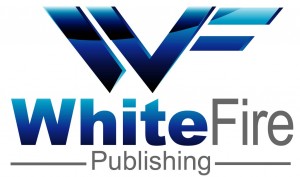Writing from the Dust
Why I wrote Devil in the Dust.
One Sunday after church, we decided to go to lunch with another family. We hadn’t had the opportunity to get to know this couple well, but the conversation was amazing, we laughed until we almost cried, and I’m pretty sure the restaurant manager was glad to see us go.

https://upload.wikimedia.org/wikipedia/commons/5/5f/Dust_Bowl_Oklahoma.jpg
On the way out, the topic grew more serious, and I mentioned something that worried me. It was maybe a sentence—I was not baring my soul—but the woman with whom we had spent the last couple of delightful hours stopped, blinked, and put up her wall-of-a-Christian-smile. In an instant, I knew I had been judged as negative. You see, for many Christians, the mantras of “the battle is already won,” “faith will get you through,” and the largely American “pick yourself up by your bootstraps” have drowned out the quieter mandate to care.
I went home chased by the feeling that, somehow, I didn’t measure up. And for a time, I dredged that place of overthinking, attempting to float a reason out of that murky pond where insecurity hides.
Of course, I came up with nothing, and decided to put my efforts into deciding what my next novel would be. Unfortunately (or fortunately), at this stage, every little life experience has potential for use.
While I had been undecided on theme, I knew I wanted the setting for the novel to be in the dustbowl in the 1930s. I began researching, and I realized the scope and human impact of this disaster was much larger than I had remembered from history class. More importantly, it lasted an entire decade. For a decade, people dealt with hunger and drought and death from breathing in the ultra-fine soot. Children were lost. Families abandoned their farms. People survived on rations of canned government meat…and that’s when they were lucky. Many felt cursed.
Life was hard. I imagine that smiles were rare, even in the church.
I started thinking about what it would take for a community to survive devastation on this scale. I considered the kind of people who make up a town: merchants, teachers, police, farmers, and ministers. And while merchants and teachers, along with everyone else, would feel the change brought on by the slow death of a drought, for a minister it would be different. A minister’s purpose is to bring people the good news of the gospel. Technically, their job would stay exactly the same, except every phrase they spoke would shift in meaning because the context—the lives of those sitting in the pews—had changed so dramatically.
Growing up as the child of a pastor, I have some knowledge about how a minister’s home works. And in all my research I was left with one question: How could a minister preach every Sunday to a congregation of people who had lost everything with no hope for improvement anytime soon?
I moved my research to the Bible, and when I did, I came across the story of Lazarus. I have heard and read this story countless times, but in the light of trying to puzzle out what a pastor might do in a situation where it looks like all has been lost, I realized something about the story that I had never considered. Before Jesus raised Lazarus from the dead, he cried with Lazarus’ sisters. He shared in their grief even though he knew it would end. He stayed there with them in that moment of sorrow.
I came to the conclusion that during times of suffering, our responsibility to others  should look nothing like that drought-of-a-Christian-smile that I met outside that restaurant. Rather, it should emulate Jesus’ example. When we make Christianity only about victory, and turn faith into a wish book, we strip it of its most powerful message: hope. Not eternal hope, but the hope of not being alone. More often than not, we lack the ability to change someone’s circumstances. What we can do is come up alongside someone and help carry their burden even if only for a few minutes. Christianity is not a way to avoid suffering, it’s about finding meaning through the suffering.
should look nothing like that drought-of-a-Christian-smile that I met outside that restaurant. Rather, it should emulate Jesus’ example. When we make Christianity only about victory, and turn faith into a wish book, we strip it of its most powerful message: hope. Not eternal hope, but the hope of not being alone. More often than not, we lack the ability to change someone’s circumstances. What we can do is come up alongside someone and help carry their burden even if only for a few minutes. Christianity is not a way to avoid suffering, it’s about finding meaning through the suffering.
I wrote Devil in the Dust as an exploration of what it means to be a Christian while standing in the midst of a desert. Told through the voices of three women who endure the quiet shame of poverty, Devil in the Dust is a story about what happens to faith when everything goes wrong.

Anonymous
March 21, 2017
I love this! I, too, have been on the receiving end of judgment from others because I have not reacted the way “Christians” think I should to my circumstances. When you look “normal” but you can’t function as a “normal” person would, you get judged. So many people don’t want to really invest in others, really get to know them, and try to really understand what life is like for them. Platitudes mean nothing. Walking beside someone through their journey in the darkness means everything.
Jackey
March 21, 2017
What a valid point. I can’t wait to read the book. At this time in our lives there seems to be pain and devastation on all sides. As people of faith we want to believe for healings and miracles. God can do these things, but when He chooses another way it sometimes leaves us reexamining our faith. That isn’t always a bad thing but we can get lost in the process. With healing and miracles are our only focus we can feel hopeless and miss what He is really doing. Thanks for that reminder.